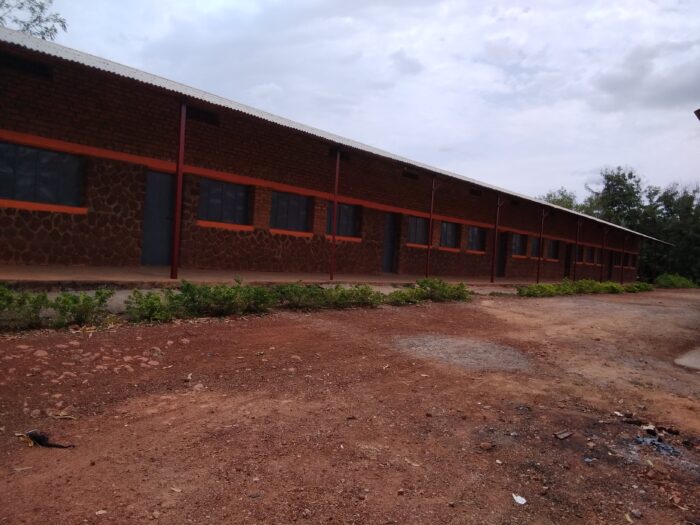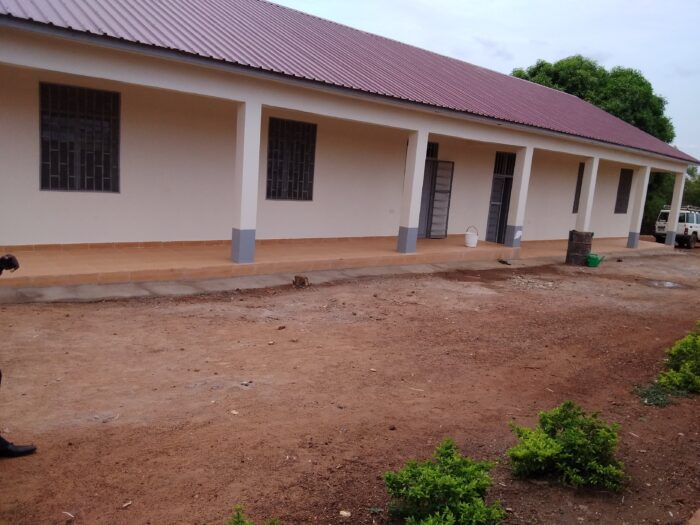Capitation Grant Helps to Boost the Sciences
August 16, 2022 12:15 pmLoyola Secondary School in Wau, Western Bahr el Ghazal State received capitation grants from the Girls’ Education South Sudan (GESS) programme in both 2020 and 2021. Capitation grants are funds made available to all not-for-profit schools (government, community, and faith-based schools) to help supplement running costs and improve the learning environment. Capitation grants have allowed schools to set their own priorities for development, and to respond to their own needs.
The money can be used for renovations; to set up physical infrastructure; to improve the quality of teaching and learning; and for general support to relieve the financial burden of school fees. Capitation grants also impact the performance of schools in the national examinations, as well as helping to bridge the gap in the performance of girls and boys.
Loyola Secondary School is a faith-based school and one of the leading schools in the State. It has high enrolment of learners – 684 (females 365 males 319) and 555 (females 278 males 277) for 2020 and 2021, respectively. It is striving for quality education as it is reflected in its vision, ‘Light for the Nations’.
After relaxing COVID-19 restrictions, the Board of Governors (a variation of the typical parent-teacher association, the Board of Governors is implemented in secondary schools and includes the Head Girl and the Head Boy) started mobilising resources to build the laboratory for computers and the sciences. The majority of school community members paid a small in-kind donation, including bricks, timber, and stones for the foundation. The work commenced and the authorities managed to build the walls and the roof, but the school faced financial constraints, and the work came to standstill.
 The school labarotay when the construction stopped due to budget constraints
The school labarotay when the construction stopped due to budget constraints
In August 2021, GESS released capitation grant funds to schools. Loyola Secondary School received a total of 1,558,020 South Sudanese Pounds (SSP). With the capitation grant, the Board of Governors decided to buy 12 windows and 2 doors for the school’s computer and science laboratories. “We have decided to construct this laboratory to ease access to practical experiments for science students in a quiet and conducive environment,” said the Head Teacher, Mrs. Jane Babtista.
“Since construction started last year, we were very happy to see that our school is going to have a laboratory because the school was giving us theory only. Now we are given the practical part and I am happy to tell you that I type and print documents,” said David, a Senior 4 learner.
The finalised laboratory has created a lot of excitement in the school and even further afield, “Our laboratory is attracting some community members who request to attend some practical work. As you can see, some teachers are now in the laboratory trying to learn more about computers. This hall is now divided into laboratory and the other side is a library. We bought those books from Kenya and Uganda and others were provided by the Ministry of Education. The library is benefiting the school and the community at the same time, even some students from other schools come and read and we don’t restrict them from entry into the library because we consider them our students,” the Head Teacher explained.
Board of Governors Chairperson, Mr. Dominic Moses said, “I am always in the school, and I have seen some of our (Board of Governors) members entering to the lab. I hope you will continue to support this school. My son is in this school, I have seen that he is good at typing, and he asked me to buy a laptop for him. It is because of this laboratory that is why he becomes interested in computer.”
By completing the construction of the students’ laboratories, learners will be able to learn technical skills in a safe and conducive learning environment. The school management is hopeful that this improved school environment will lead to better attainment and performance in the national examinations.
 The school labarotay after completion with capitation grants
The school labarotay after completion with capitation grants
Capitation grants are released to a school after satisfying/meeting hurdles laid down by the Education Transfers and Monitoring Committee (ETMC) at MoGEI, such as submitting school development plans and budget forms; active working/functional School Management Committee/Board of Governors (SMCs/BoGs); submitting a Pupil Attendance Register (PAR); sending the daily attendance of students/learners to the South Sudan Schools’ Attendance Monitoring System (SAMS); opening a bank account; and most importantly, accounting for funds received in the previous year(s).
Western Bahr el Ghazal State has more than 400 schools across the state, of which more than three quarters have benefited from the grants between 2019 and 2021. In 2020, schools in Western Bahr el Ghazal closed due to COVID-19, reopening in May 2021, after about 14 months.
With the completion of the computer and science laboratories, Loyola became one of the first schools that has managed to address the chronic lack of laboratories for science students in the country, and now acts as a role model for other secondary schools across the state.
By providing funding to primary and secondary schools, GESS and GRSS/MoGEI are helping to improve the quality of education by increasing the amount of resources available to the school. Capitation grants are also removing the burden of registration fees for learners and parents, reducing the cost of education, and encouraging families to send their children – both girls and boys – to school. These investments also offer the opportunity for schools to develop appropriate and contextual inclusive initiatives for children with disabilities.
Capitation grants to primary schools are funds paid by the Government of the Republic of South Sudan (GRSS) through the Ministry of General Education and Instruction (MoGEI), whilst secondary school capitation grants are funded by UK aid, the Government of Canada through Global Affairs Canada (GAC), the United States Agency for International Development (USAID), and the European Union (EU).
Read about GESS capitation grants here: https://girlseducationsouthsudan.org/activity/capitation-grants/
Categorised in: Capitation Grants, Girls' Education